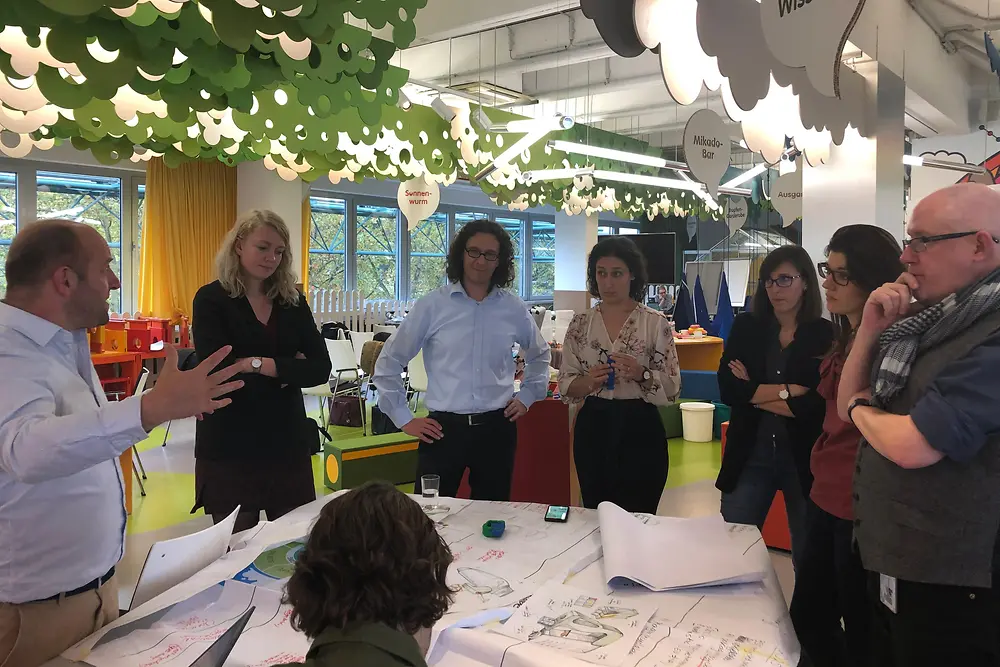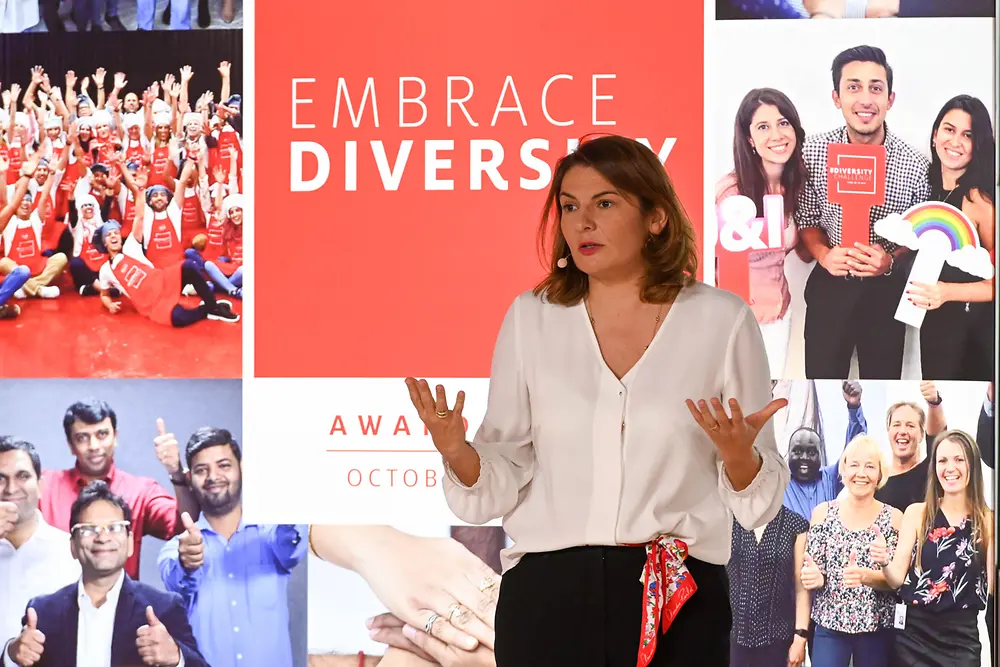Our company is a source for a whole host of examples of how this can work: one of the role models in this regard is my Board Colleague Sylvie Nicol. She has proven once more that women can have outstanding careers within Henkel. But just imagine, even today, I still occasionally hear the phrase “despite three children”. It is precisely this kind of thinking that shows that we have not yet achieved our goals regarding women and diversity. No one asks men how they manage to do what they do despite having a family.
I am pleased that our collaboration with HR on this topic has already achieved some success over the past few years. It used to be that we only had one woman in our Laundry & Home Care Executive Committee. Now there are three: Núria Ribe, who is responsible for our Home Care business, Marie-Laure Marduel, who is our Head of HR, and Birgit Rechberger, responsible for our Laundry & Home Care business in Europe. We have also appointed women in other key positions in recent years – particularly in areas where men are often highly overrepresented. For example, we now have women in General Manager positions in China, Italy and Lebanon, and others in the roles of sales managers and plant managers. These are just a few positive examples demonstrating that our implemented measures like mentoring are effective and that we must continue striving to promote women in all areas, including in areas traditionally dominated by men.
Whereas we used to have only one woman in our Laundry & Home Care Executive Committee, we now have three: Birgit Rechberger, Núria Ribe and Marie-Laure Marduel.
We also need to constantly assess and reassess the way we think and act and remind ourselves that career success should never be dependent on gender. Sylvie, Birgit and the other female executives are evidence of this. They all have my complete support on this topic. No matter what aspect of diversity is at stake, including when it comes to defining clear goals. BUT: It is up to all of us in Laundry & Home Care as well as Henkel to drive an inclusive company culture that enables diversity.
The following proves true again and again: We have to invest at the beginning – not just in the environment at the organization, but also in increased understanding of different nationalities, cultural backgrounds, ages, experiences and perspectives. It is, of course, easier to form a team if everyone in it comes from the same background and has very similar attitudes and ways of thinking.
That is why it’s worthwhile to choose this path, even if it is sometimes more difficult at the start, and why it’s worthwhile to take the time to develop a mutual understanding and to invest and make the most of everyone’s various strengths. For example, we need the different perspectives and approaches of men and women in the company because we develop products for both male and female consumers. Or for instance, having employees from developing markets outside of Europe will help us working in those markets with much more promising results.
Promoting diversity is worthwhile – I am in, what about YOU?















